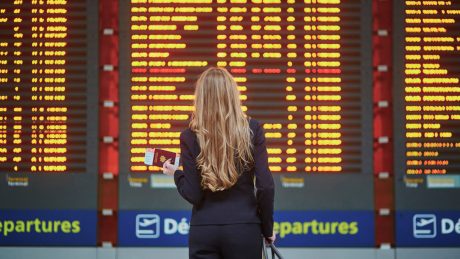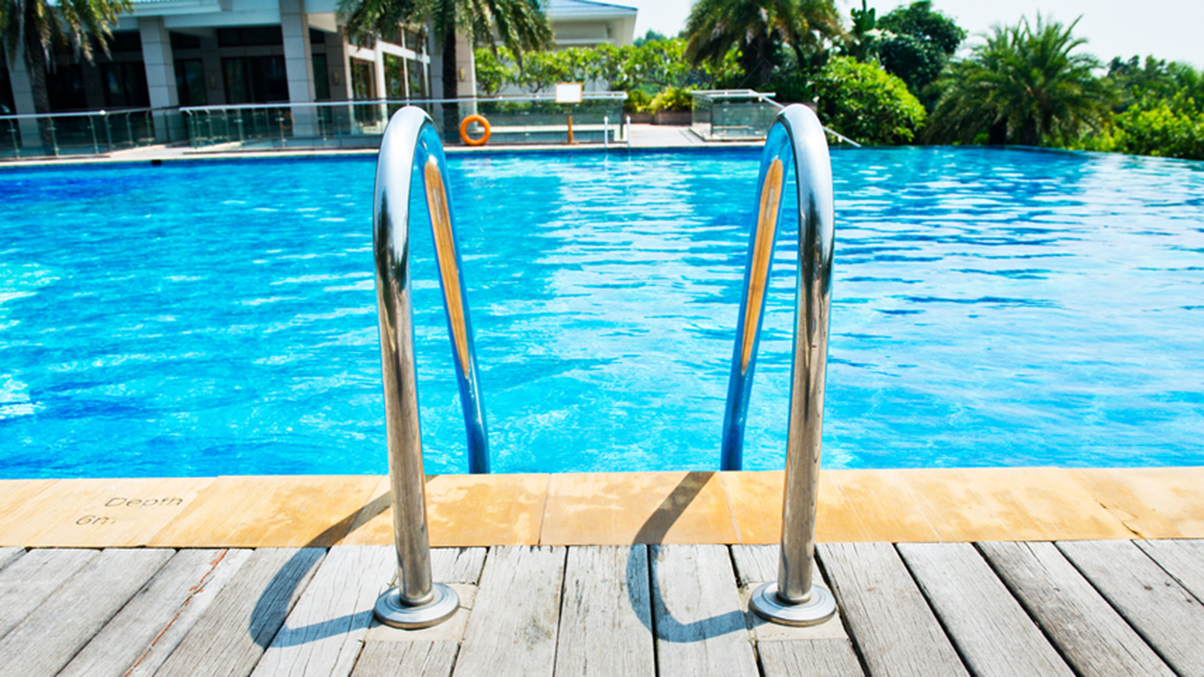Partners Sarah Stewart and Chris Deacon rounded off a busy year of speaking engagements for the Aviation and International Injury department by speaking at the fifth APIL Accidents Abroad conference on 3 December 2020.
Chris introduced the conference in his capacity as Co-ordinator of the APIL International Special Interest Group, and welcomed delegates from across the UK and Europe. This was held in a virtual format for the first time in view of the ongoing pandemic.
Chris set the scene for the morning’s focus on the impact of the Covid-19 pandemic on aviation and international injury litigation by quoting from the UN World Tourism Organisation Impact Assessment on the Covid-19 outbreak and international tourism. This estimates that international tourism suffered a 70% decline between January and August 2020. Chris noted that it might take time for the true impact on international injury litigation to trickle through. In the meantime, 2020 continued to be a “bumper” year for travel litigation.
Court of Justice of the European Union opinion in X v Kuoni
Key developments during 2020 included the opinion of the Advocate General of the Court of Justice of the European Union (CJEU) in the long-running litigation in X v Kuoni. The case turned on the ability of a tour operator to defend a claim on the basis the injury (in the case of X, a serious sexual assault by a member of staff at an upmarket resort in Sri Lanka) was caused by an event that neither the tour operator nor the hotel, (as the supplier of the services under the package holiday contract), could foresee or forestall even if the tour operator had exercised all due care. In the Advocate General’s opinion, this defence could not be relied upon by a tour operator where the improper performance of the contract is the result of the acts of an employee of a supplier of services under the package travel contract. Reflecting on the opinion, Chris noted:
“The Advocate General makes clear that liability under the package travel regulations extends to the negligence of an employee of the local supplier. The opinion helpfully clarifies confusion that had arisen following the Court of Appeal’s decision in X v Kuoni as to the vicarious liability regime’s proper operation under the package travel regulations.
“Following the reasoning of the Court of Appeal, a tour operator would be able to avoid liability where the injury was caused by the negligence of the local supplier’s employee and not the supplier itself. That cannot be right given the high level of consumer protection intended by the Package Travel Directive. It would also have the perverse result of enabling a tour operator to avoid liability in common circumstances such as an accident on the resort transfer bus where the cause of the accident was the driving of an employee of the local supplier, rather than the supplier itself. It is hoped that the Advocate General’s opinion will be followed by the CJEU and then the UK Supreme Court so that UK consumers who sustain serious injury can continue to enjoy the confidence and protection of bringing a claim against the UK tour operator where they have booked a regulated package holiday and the local provider of services is at fault.”
Recent events in the aviation industry
Before lunch, Sarah Stewart spoke alongside Max Archer of 12 King’s Bench Walk about recent developments in aviation accidents and Montreal Convention claims. Sarah gave an overview of recent events within the aviation industry, including:
- an analysis of the interactions between European Regulation No 261 (“EC261”) (which relates to air passenger’s rights to compensation or refund for delayed or cancelled flights) and the coronavirus pandemic
- an update on the Boeing 737 MAX claims
- case developments in the inquest proceedings resulting from the Shoreham Air show disaster, and
- details of the recent Unmanned Aircraft Systems (UAS) guidance published by the Civil Aviation Authority on 5 November 2020.
Recent aviation case law on liability and quantum
Sarah and Max also considered recent aviation case law on liability and quantum, including from the US and Australia. Their discussion focused on which injuries the courts will allow to be compensated under the Montreal Convention.
Max considered updates on liability issues, notably Palaiokrassas v Black and Green Trading Ltd [2020] where he is instructed by Stewarts and successfully defeated the defendant’s application to set aside a default judgment. Among other factors, the court was unconvinced by the defendant’s arguments that local standards should apply in aviation cases.
Their session on aviation provoked a lively discussion about the Montreal Convention’s outdated nature, including the arbitrary limits on damages and the requirement for the claimant to have sustained a ‘bodily injury’, which may exclude psychological trauma arising from an air accident.
Jurisdiction, Brexit and the Lugano Convention
Chris returned to the virtual lectern in the afternoon to talk about recent developments in jurisdiction and the impact of Brexit. He focused on how the European rules on jurisdiction have enabled practitioners to push the boundaries on behalf of their seriously injured clients.
Chris highlighted the decisions of Lackey v Mallorca Mega Resort [2019] EWHC 1028 (QB), where he acted for the claimant, and Hutchinson v Mapfre [2020] EWHC 178 (QB). The English courts accepted jurisdiction under the consumer contract rules of the European jurisdiction regime in both cases where the claimants had sustained life-changing spinal cord injuries.
Chris said that in Lackey, which involved a non-package holiday accommodation booking, it did not matter that the claimant was not the lead customer on the booking, as long as she was a named party on the contract with the hotel. Subsequently, in Hutchinson, the High Court confirmed there is no need to establish a causal link between the contract in question and the defendant’s marketing activities to the UK. It did not matter that the claimant had purchased his ticket to the beach club where his accident occurred locally in Ibiza; he was still entitled to pursue the beach club in England under the consumer contract provisions of the European regime.
Commenting on the jurisdiction rules available to serious injury claimants following Brexit, Chris highlighted the ongoing lobbying to allow the UK to accede to the Lugano Convention. This would maintain rules that protect the weaker party to a dispute. Unfortunately, the EU had not agreed the UK’s accession to the Lugano Convention before the Brexit transition period ended on 31 December 2020. This means that serious injury claimants need to take specialist advice to ensure they “mind the Lugano gap” when considering when and where to bring a claim for damages under the post-Brexit rules on jurisdiction.
Common law rules on jurisdiction
Looking to the future, Chris noted that the common law rules on jurisdiction will be of increased importance, notably unless and until the UK accedes to the Lugano Convention. The common law rules generally require a claimant to apply to the court for permission to serve a defendant who is not present within the jurisdiction of England/Wales.
However, an important exception to the need for permission to serve out is provided for in the new employment/consumer jurisdiction provisions at sections 15A-E of the Civil Jurisdiction and Judgments Act 1982 and the amended CPR 6.33(2). These rules may benefit a claimant who has sustained serious injury overseas when enjoying services under a consumer contract, which will notably include non-package holiday accommodation. The consumer can bring proceedings in their home court regardless of where the other party to the proceedings is based. This addition to the English rules on jurisdiction may go some way to redressing the loss of rights to weaker parties to a dispute caused by Brexit.
However, the new consumer and employment contract provisions are no replacement for the certainty that the Lugano Convention brings to serious injury claimants. This is because under the common law rules the court enjoys an inherent discretion on jurisdiction where it can decline to hear a claim on the basis the English courts are not the most appropriate or convenient forum, known as the doctrine of forum non conveniens.
The APIL Accidents Abroad conference 2020 was sponsored by 12 King’s Bench Walk, one of the leading personal injury, aviation and international injury barristers’ chambers. Plans are already underway for the conference to return at the end of 2021 in a hybrid virtual/in-person format to maximise participation from specialist cross-border practitioners from Europe and beyond.
You can find further information regarding our expertise, experience and team on our Aviation and International Injury pages.
If you require assistance from our team, please contact us or alternatively request a call back from one of our lawyers by submitting this form.
Subscribe – In order to receive our news straight to your inbox, subscribe here. Our newsletters are sent no more than once a month.








